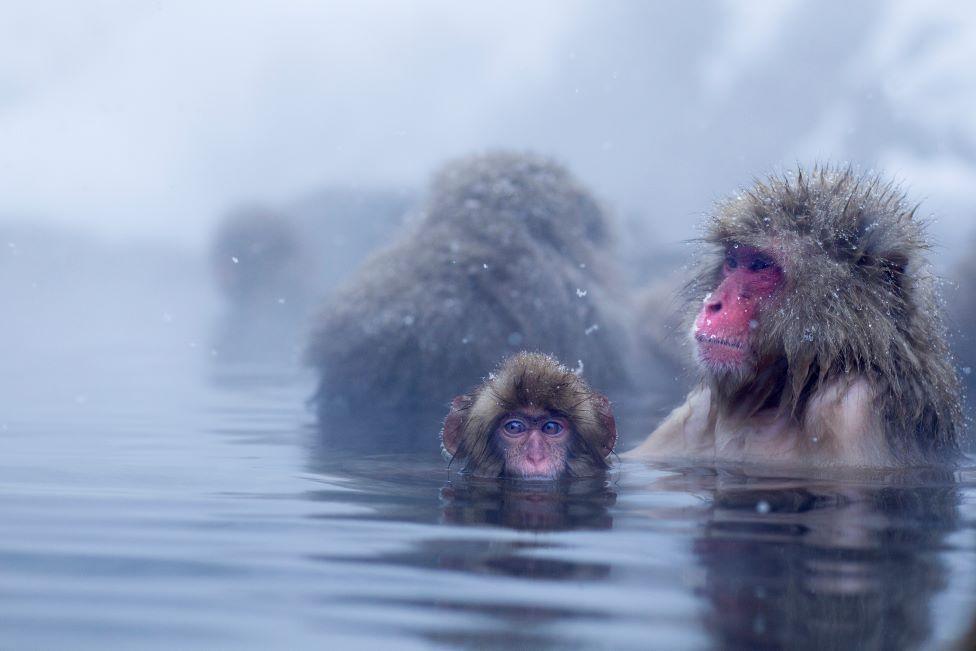Drone captures second sighting of escaped monkey
Watch: New video emerges of escaped monkey in the Highlands
- Published
A monkey that escaped from a wildlife park in the Highlands has been spotted for a second time by teams searching for him.
The Japanese macaque left the Highland Wildlife Park near Kincraig, south of Aviemore, on Sunday.
Thermal imaging drones have been deployed to help the Royal Zoological Society Scotland (RZSS) catch the seven-year-old male.
The team viewed the animal on the footage for about 45 minutes but were unable to catch him.
Escaped monkey was running from fight, says keeper
- Published29 January 2024
Escaped monkey on the loose in Highland village
- Published28 January 2024
The sighting was confirmed on Tuesday afternoon around 984ft (300m) from the park entrance.
The monkey, who has not been named, is hoped to be returning to join the resident troop.
Volunteers from the Cairngorm Mountain Rescue Team (CMRT) have also been deployed in the search.
The team donated their drones - usually used to locate wayward hillwalkers - to RZSS staff.

In a part of Japan, troops of snow monkeys seek relief from cold temperatures in natural geothermal pools
CMRT team leader Willie Anderson admitted it had been a "first" for the volunteers, but said he was hopeful the monkey would return under its own power.
He told BBC's Good Morning Scotland: "The staff themselves are very experienced with these animals and I think that if they had been in a position where they could have darted it, then they would have done.
“But it is getting so close to the park, it might even hear the call of the other macaques that are there and being a sociable animal, hopefully it will make its way back in and be reunited with its troop.”
Locals were warned not to bring in any food that is stored outside to encourage the monkey to return to the park when it is hungry, and have been advised not to approach the animal.
Keepers believe the macaque, also known as a "snow monkey", may have been running to avoid a fight during breeding season.
RZSS said it did not think the monkey posed a threat to the public or pets.
Keith Gilchrist, living collections operations manager at the wildlife park, said: "We're asking locals to please not bring any obvious potential food sources like bird feeders or food waste inside, as we're hopeful that the monkey will return to the park if he can't find food elsewhere.
"Although the macaque is not presumed dangerous to humans or pets, our advice is to not approach him but to contact our hotline on 07933 928 377 with any sightings."